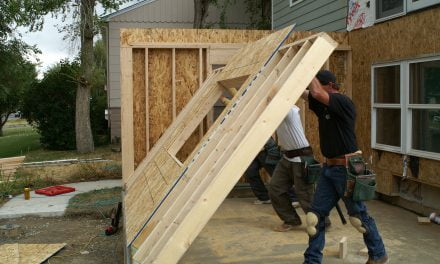Do your homeowner clients ever talk about how expensive owning a home is?
The average U.S. homeowner spends $9,100 in housing expenses on top of their mortgage each year, equal to an additional $760 a month, according to Zillow. These additional costs include:
- property taxes;
- utility costs;
- homeowners’ insurance;
- landscaping;
- cleaning; and
- home maintenance.
In California, extra homeownership costs can be even higher — especially in coastal cities. The average additional homeownership expense per year is:
- $16,300 in San Francisco;
- $13,500 in San Diego;
- $12,600 in Los Angeles;
- $10,200 in Riverside; and
- $10,100 in Sacramento
While California’s additional homeownership costs are certainly higher than average, they’re actually fairly low compared to home values in the state.
For instance, consider San Diego. The average homeowner’s annual property tax bill is $3,633. The median home value is $552,400, according to Zillow. Thus, the average tax bill represents 0.7% of the average home’s value. Meanwhile, the U.S. average tax bill represents over 1% of the median home value.
The difference for California is Proposition 13, which caps annual property tax increases by limiting the assessed value to a 2% annual increase, except upon the resale of the home.
Higher home values also mean a higher than average cost for homeowners’ insurance. For example, the average San Francisco homeowner pays $4,260 on homeowners’ insurance a year. The U.S. average is just $996.
Prepare your homebuyers
The best thing real estate agents can do with this information is to prepare their homebuyers for the extra homeownership costs they will undoubtedly experience.
Providing a far better estimate than a mortgage calculator, experienced real estate professionals can help their homebuyers understand how much a property is truly going to cost them over the years. When you’re unsure how much utilities or landscaping will cost, simply ask the seller to provide this information as soon as possible so your homebuyer can make an informed decision to buy.
Use RPI Form 320-4 to compare homeownership costs with renting. This includes an analysis of the tax savings of homeownership, equity buildup through appreciation, as well as the extra costs first-time homebuyers may be unaware of.
The good news for potential homebuyers is that — even with the extra costs — homeownership usually saves money in the long run, as long as the homebuyer is committed to staying in the home for a couple of years.
Agents can also use RPI Form 311 to estimate homebuyer acquisition costs. First-time homebuyers are often unaware about the cash they will need on hand to complete tasks like hiring an inspector, paying for the appraisal, or closing. Informing your buyer upfront will lessen the chance the home sale will derail down the line.















Really dumb idea. What a bogus “help” for novice home buyers. Many homeowners don’t have a clue about these numbers and they will just be made up by the real estate agents. Is my 95 year old home seller really going to fill out this form in order to sell her house? Would her data be relevant to the new buyer anyway? Heck, I only use half of my house except when I have visitors. I love the area so I don’t downsize. My home energy costs would not be useful to a young family of 5 that needs to use all the bedrooms, etc, etc. Plus, my utility costs in an attached apartment are deceptively low because the occupant is disabled and qualifies for lower rates. This is just more BS on top of the TDS BS that I instruct my buyers to always always always take with a grain of salt. Tip of De Sburg, so to speak. Half of the sellers don’t know all the things that need repair beyond the TDS in the old homes in my area. This is just more fodder for lawyers.
More useful would be a lender-mandated “real cost of home ownership” seminar for first time buyers. It would be better for them to look at internet sites that have data on home ownership costs in various regions of the country. If they are not handy, they also need a dec ent home warranty program. Also, many sites will give average estimates to paint, repair basement leaks, fix a leaking faucet, replace a light switch, etc. I try to educate my buyers myself, but a decent homeowners class would be good. Also, I try to steer first time buyers to condos as a first step, because they only have to worry about interior costs. But this also requires education in how to be a rexponsible HOA member, which iz another courae that zhould be mandated.
Thank you Carrie. The cartels, CAR/NAR, shy away from such discussion. But it’s needed and you did it succinctly. Thanks